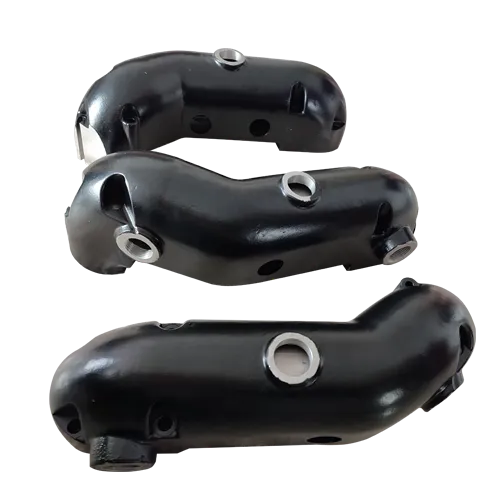Mobile:+86-311-808-126-83
Email:info@ydcastings.com
English
Understanding the Process and Benefits of Aluminum Extrusion in Manufacturing
Understanding Aluminum Extrusion An Insight into Its Benefits and Applications
Aluminum extrusion is a manufacturing process that transforms raw aluminum into various useful shapes and structural forms. This process is popular in various industries due to aluminum's unique properties, which make it desirable for a wide range of applications. In this article, we will explore the aluminum extrusion process, its benefits, and its diverse applications across different sectors.
The Aluminum Extrusion Process
The aluminum extrusion process begins with heating an aluminum billet, which is a solid block of aluminum, to a temperature that makes it malleable, typically ranging between 350°C to 500°C. Once the aluminum has reached the desired temperature, it is placed into a hydraulic press where it is forced through a shaped die. This die determines the final cross-sectional profile of the aluminum product. The result is a continuous length of extruded aluminum that can be cut into specific sizes according to requirements.
After extrusion, the aluminum profiles often undergo additional treatments such as aging, anodizing, or powder coating. These processes not only enhance the aesthetic appeal but also improve the corrosion resistance and strength of the finished products. The flexibility of the extrusion process allows for a vast variety of shapes, from simple rods and channels to complex designs used in specialized applications.
Advantages of Aluminum Extrusion
1. Versatility One of the key advantages of aluminum extrusion is its versatility. The process can produce an extensive range of shapes and sizes, making it suitable for countless applications in various industries such as construction, automotive, aerospace, and consumer goods.
2. Lightweight Aluminum is significantly lighter than other metals, such as steel or copper. This property is especially relevant in industries where weight reduction leads to improved energy efficiency and performance, such as in automotive and aerospace design.
3. Strength and Durability Despite its light weight, aluminum is remarkably strong and can withstand considerable stress and strain. When alloyed and treated properly, it can rival the strength of many traditional metals, making it an ideal choice for structural components.
4. Corrosion Resistance Aluminum naturally forms a protective oxide layer that protects it from corrosion. This resistance makes aluminum suitable for outdoor applications and environments that experience moisture or chemical exposure.
5. Recyclability Aluminum is one of the most recycled materials in the world. The recycling process requires only a fraction of the energy consumed during primary aluminum production, making it an environmentally friendly choice.
aluminum extrusion

Applications of Aluminum Extrusion
Aluminum extrusion is utilized in various applications across multiple sectors, highlighting its versatility.
- Construction Aluminum extrusions are widely used in construction for window frames, curtain walls, roofing, and other structural components. Its lightweight nature allows for easy handling and installation.
- Automotive In the automotive industry, aluminum extrusions are employed to reduce vehicle weight, thereby enhancing fuel efficiency and performance. They are used in chassis, frames, and various components.
- Aerospace The aerospace sector benefits from aluminum's high strength-to-weight ratio and corrosion resistance. Extruded aluminum components can be found in aircraft structures, wing spars, and fuselage frames.
- Consumer Products Many consumer products, such as appliances, furniture, and electronics, utilize aluminum extrusions for their design flexibility and lightweight properties.
- Industrial Applications Aluminum extrusions are also extensively used in manufacturing machinery, tooling, and equipment frameworks due to their strength and versatility.
Conclusion
In conclusion, aluminum extrusion is a vital manufacturing process that caters to the demands of various industries. Its ability to produce lightweight, strong, and corrosion-resistant products makes it an indispensable material in modern engineering and design. As innovation continues to drive advancements in extrusion technology, we can expect even broader applications and enhancements in the efficiency and sustainability of aluminum products. Whether it’s constructing buildings, designing vehicles, or creating everyday consumer goods, aluminum extrusion plays a pivotal role in shaping the future of manufacturing.











